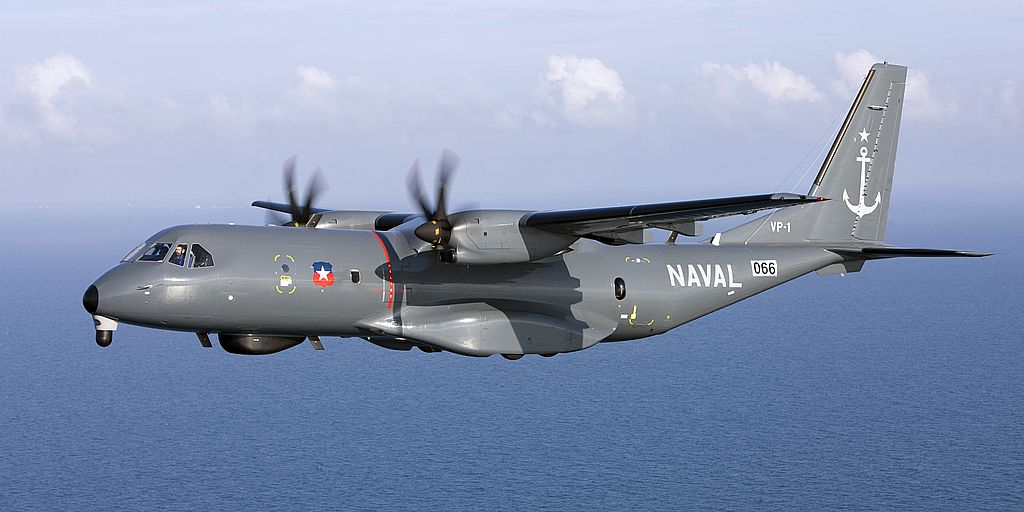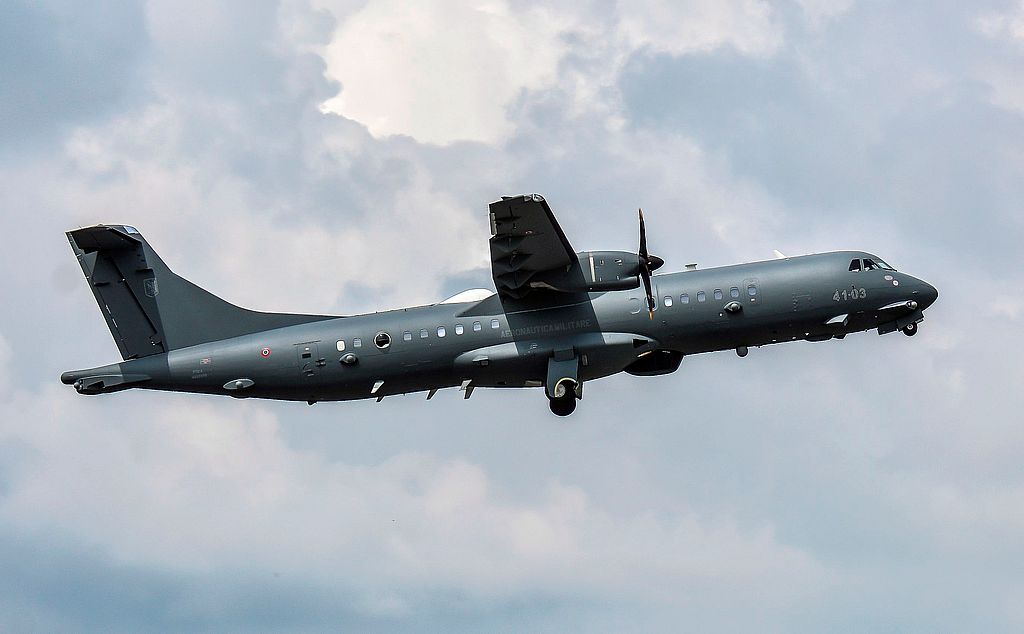SHAH ALAM: In the MPA postings recently, I wrote that it was unlikely that Malaysia will get the Boeing P-8A Poseidon as maritime patrollers. It is too expensive, I wrote. It is expensive for us of course though others might think otherwise.
Which are the other countries that might think that it is not too expensive? Singapore and New Zealand comes to mind. In fact, New Zealand which is looking to replace its Orion P-3K has been cleared by the US to buy four Poseidon for US$1.46 billion.
At the current exchange rate, it is RM6.33 billion or around RM1.5 billion per plane.
MPA Requirements, Part 1

For a single Poseidon, we could get at least five CN-235 MPA or the same number of C295s or the ATR 72 MPA. Guess we will have to stick with the twin turboprops or smaller jets, then.
MPA Requirements, Part 2

Note that New Zealand has yet to select its new MPA and the announcement by the US State Department below is just a notice for a possible FMS buy which is required by its law. With Australia getting the Poseidon as well – 12 ordered with three as option – it might be good for New Zealand to pick the same aircraft as well.
As Australia and New Zealand are our partners in FPDA, we are likely to have a single Poseidon based here in the future, just like the current arrangement with a AP-3C stationed at Butterworth. This could happened once the Poseidon achieved the Initial Operational Capability, which is slated by 2020.
And if Singapore also orders the Poseidon – to replace its Fokker 50 MPA – we also might get some benefit from it, though how much is beyond me.
WASHINGTON, Apr. 28, 2017 – The State Department has made a determination approving a possible Foreign Military Sale to New Zealand for P-8A aircraft and associated support. The estimated cost is $1.46 billion. The Defense Security Cooperation Agency delivered the required certification notifying Congress of this possible sale on April 27, 2017.
New Zealand has requested the potential sale of up to four (4) P-8A Patrol aircraft. Each includes: commercial engines, Tactical Open Mission Software (TOMS), Electro-Optical (EO) and Infrared (IR) MX-20HD, AN/AAQ-2(V)1 Acoustic System, AN/APY-10 Radar, ALQ-240 Electronic Support Measures. Also included are eight (8) Multifunctional Information Distribution System Joint Tactical Radio System (MIDS JTRS); five (5) Guardian Laser Transmitter Assemblies (GLTA) for the AN/AAQ-24(V)N; five (5) System Processors for AN/AAQ-24(V)N; thirty (30) AN/AAR-54 Missile Warning Sensors for the AN/AAQ-24(V)N; ten (10) LN-251 with Embedded Global Positioning Systems (GPS)/Inertial Navigations Systems (EGIs); support equipment; operation support systems; maintenance trainer/classrooms; publications; software, engineering, and logistics technical assistance; foreign Liaison officer support, contractor engineering technical services; repair and return; transportation; aircraft ferry; and other associated training, support equipment and services. The total estimated cost is $1.46 billion.
This proposed sale will enhance the foreign policy and national security of the United States by strengthening the security of a Major Non-NATO ally which has been, and continues to be, an important force for political stability within the region. New Zealand is a close ally in the region and an important partner on critical foreign policy and defense issues.
The Government of New Zealand intends to use these defense articles and services to continue its Maritime Surveillance Aircraft (MSA) capability, following retirement of its P-3K maritime patrol aircraft.
The sale will strengthen collective defense and enhance New Zealand’s regional and global allied contributions.
New Zealand has procured and operated U.S. produced P-3 MSA for over 40 years, providing critical capabilities to NATO and coalition maritime operations. New Zealand has maintained a close MSA acquisition and sustainment relationship with the U.S. Navy over this period. The proposed sale will allow New Zealand to recapitalize, modernize and sustain its MSA capability for the next 30 years. As a long-time P-3 operator, New Zealand will have no difficulty transitioning its MSA force to the P-8A and absorbing these aircraft into its armed forces.
— Malaysian Defence
If you like this post, buy me an espresso. Paypal Payment

View Comments (8)
Good for RNZAF & RAAF in getting P-8A, a long time operator of P-3 and no problem absorbing the new MPA.
Interestingly IAF/IN who had been using Russian MPA changed over to P-8.
Reply
India realised that for a small fleet it will be cheaper in the long term to run Western hardware
Many of the P-8's capabilities are beyond the needs of New Zealand and Malaysia.
The P-8 is not only the world's premier ASW MPA (with good range and speed, upcoming integration with new missiles, high altitude torpedoes and Global Hawks etc), it is also able to perform roles independently or in support of ground forces by virtue of ESM and SAR.
The most I can see New Zealand being interested in are an updated ASW and sea control capability. For us, we might be prudent to acquire nothing more than a radar and EO equipped aircraft.
Reply
You forgot about the data link.
A data link would certainly be useful. Yet exactly how useful?
In our context, the MPA or MSA is primarily intended for patrol and not to perform kinetic attacks or even to support such strikes. Even if so, it is doubtful if the given sensors can provide an engagement quality track, or have enough range for the MPA's own survival.
We also have to decide which strike aircraft to team with the MPA via datalink. If we chose the MKM, we would have to integrate a Russian datalink to a Western MPA. If we chose the Hornet, the MKM would be unable to use the datalink.
Reply
We need the data link to increase our SA. Yes then we will have to link them with our strike platforms but also the other platforms ships etc
It is possible SG may buy to please trump! But when it come to SG it about sistem not platform.
As it is, there was RFI request for informtation for P3 many years ago in 2010. Sg did not follow through.
It meaning 2 things: SG waiting for P8 to mature or SG designing it own MPA or a sistem to replace the MPA platform altogether.
If it a MPA-MPA replacement, SG want to suit and match the sistem and call it MPA-SG or something like tat but able to network with RSAF, RSN, SAF and partner countris like Uncle Sam and FPDA. If the same sistems can be found sold by another country and more cost efecktive SG will not buy P8.
One draw back with Uncle Sam produk sometimes they dun allow u modify put your own sistems until much later like F16s. This is key for SG. SG want to modify it. The latest modification is Apache Longbow.
AM,
Yes and we really don't need a platform with the range and endurance the P-8 offers; for us it's an overkill. Not to mention the operating costs.
Nimitz,
What choice does the IN have. It needs an aircraft with the needed range and endurance [given the country's vastness]; not to mention an advanced sensors suite and Russia has nothing to offer in this regard.
NZ needs something with a long range as it is the South Pacific superpower so to speak and needs to be aware of what others are up to in that part of the world, which is its sphere of influence. There are huge armadas of Chinese fishing trawlers already in Fiji. We have to realistic, we do not need a P8, smaller mpa like the Do228 based in Labuan and the peninsular will suffice to cover our EEZ.
@ Marhalim,
Actually the price of 1 poseidon could get 12 cn-235mpa, the quantity for the c295 is as per you wrote, but atr-72 is probably just 4, as per italian air force examples.
Or probably 6 Boeing MSA based on the challenger 605, or 10-12 challenger 605 but with thales or leonardo systems.
I liked the challenger 605 as a platform. It has twice the speed (450 knots) and twice the range (4000nm) of the turboprops. It means that from subang it could easily patrol over pulau layang2, try to do that with a turboprop.
Reply
Mine includes the profit for the agents
@ marhalim
It is impossible that the price of the smaller cn-235mpa = c-295mpa. It is only about usd30-35 million as per sold to south korean coast guard.
The atr-72 mpa for italian air force is worth usd397 million for 4 aircraft. And that is for the basic version you see in langkawi, without any ASW capability.
The Boeing MSA is a Canadair Challenger 605 fitted with P-8 Poseidon electronic systems but with selex (leonardo) seaspray AESA radar and no ASW capability, it is told that it would cost around usd60 million each.
As for new zealand, the MPA is its highest, top most capability platform on its air force, as it has no fighter aircraft fleet. So for usd1.46 billion for what is basically its only "fighting" aircraft and replacement of the over 40 year old p-3, it is a small price for the developed country. Commonality with its ANZAC partner Australia is also a very important consideration.